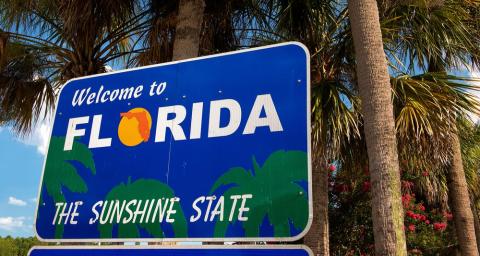Advocates of the nonpartisan, top-two open primary system are collecting signatures to get the reform on the 2020 ballot in Florida. The effort comes after the Florida Constitutional Revision Commission rejected a proposal for nonpartisan primary reform earlier this year.
"After engaging the Florida Constitution Revision Commission on the subject of open primaries for over a year, the commission failed to act on the second most popular issue brought before them," explained Steve Hough, Chairman of Florida Fair and Open Primaries, the organization pushing for nonpartisan primary reform.
"At the conclusion of that process, we had to decide whether to fold our tents and retreat or to charge ahead. While we acknowledge what an arduous task this is, we are encouraged by the number of nonpartisan reform efforts being pursued across the country. The work of Katie Fahey and the thousands of volunteers in Michigan provided timely inspiration."
The work that Hough is referring to is the campaign by Voters Not Politicians to get redistricting reform on the Michigan ballot. The campaign -- which started from a single Facebook post -- was able to gather over 400,000 signatures.
The proposed primary reform in Florida calls for a nonpartisan, top-two open primary system similar to the systems in California and Washington state. All voters and candidates, regardless of party participate on a single ballot. The top two vote-getters move on to the general election.
Florida currently uses a closed partisan primary, which prevents 3.4 million independent voters from participating unless they re-register with the Republican or Democratic Party at least a month before primary election day.
There is also a petition to amend the state constitution to end the public funding of private party primaries. Florida spends millions on primaries each election cycle that serve the private purpose of selecting nominees for private political parties.
The hurdle for both initiatives is a tall one. Florida Fair and Open Primaries must gather 766,200 signatures, which equals 8 percent of the total votes cast in the last presidential election. However, the group has until February 2020 to collect these signatures.
Additionally, Hough explained, the 8 percent threshold must be met in at least 14 of Florida's 27 congressional districts. Ten percent of these signatures must be garnered before a measure is sent for judicial review and a financial impact statement is released.
Stay tuned for more on this story.
Photo Credit: Ingo70 / shutterstock.com
